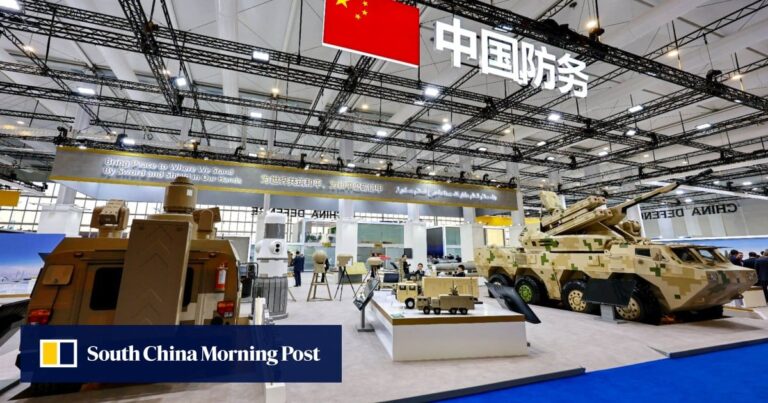These attacks are a spillover from the war between Israel and Gaza, a conflict that was supposed to have been discussed at the Beijing meeting, said Timothy Heath, a senior fellow for international defense at the US-based think tank RAND Corporation.
“China [have talked] On the Gaza war [hoped to] “We reassure Saudi Arabia that China does not support Iran over its Sunni competitors. Instead, China seeks to feign neutrality and want to promote peace,” he said.
Jesse Marks, an adjunct fellow at the Stimson Center’s China Program and a former U.S. defense adviser, said Riyadh has low expectations for China’s role in the conflict.
“While China will intervene in rhetoric, neither the U.S. nor Saudi Arabia sees China as a credible mediator in the current conflicts in Gaza or the Red Sea,” Marks said.
“Beijing has failed to take any meaningful action to encourage a ceasefire in Gaza. Despite being sounded out by the US and its coalition forces to help address the Houthi crisis, China chose not to engage, instead using a period of uncertainty to escalate its criticism of the US and tarnish America’s image in the region. This behaviour was widely observed by US officials and others in the region.”
“China is building strong economic ties with Saudi Arabia through expanded arms sales, so that will likely be part of the discussions…They’re meeting now in part to follow up on larger arms sales and defense cooperation,” Heath said.
Washington remains Riyadh’s largest arms supplier, but Saudi Arabia has increased its arms imports from China in recent years, mainly following a three-year U.S. ban on arms sales to the country from 2021 over human rights violations.
According to a Bloomberg report, Saudi Arabia signed an arms deal with China in 2022 worth $4 billion that includes deals for armed drones, ballistic missiles and anti-drone laser systems.
China also displayed the FC-31 fighter jet, a rival to the US F-35, at a defense expo in Riyadh earlier this year, and Saudi Arabia has reportedly used Chinese Winglong-2 drones in combat in Yemen.
“We expect China will continue to offer Saudi Arabia attractively priced and quality weapons, particularly drones, which are a Chinese strength and very popular in the region,” Heath said.
Song Zhongping, a former People’s Liberation Army (PLA) instructor, said the high-level talks in Beijing were a continuation of “long-standing” military cooperation between the two countries.
“China-Saudi Arabia military ties have a long history of promoting cooperation and supporting diplomatic strategies to diversify the development of Saudi Arabia and other countries,” he said.
That relationship was reflected in a joint Navy counterterrorism exercise in October that involved more than 100 military personnel.
However, the US remains Saudi Arabia’s largest arms supplier, accounting for about 80% of the country’s arms imports between 2019 and 2023, according to the Stockholm International Peace Research Institute.
“Beijing and Riyadh maintain a limited level of defense cooperation, but that cooperation is far less than Saudi Arabia’s preference for a defense partnership with the United States,” said Marks of the Stimson Center.
“Of course, joint military exercises, military education exchanges and defense equipment sales will continue, but they will be in addition to, not a substitute for, the U.S.-Saudi defense relationship.”
Relations between the two countries have stalled somewhat over the past year. Riyadh and Washington were expected to sign a defence treaty last year that would pave the way for the normalisation of ties between Saudi Arabia and Israel.
But the October 7 attack on Israel and the war in Gaza put that on hold.
However, Heath said Beijing cannot offer Riyadh the same level of support as Washington.
“The Saudis’ change should not be overestimated. They still value the United States as a preferred security partner, and China simply offers too little beyond arms sales to challenge the U.S. position,” he said.
But Song said Saudi Arabia seeks diplomatic diversification and independence and will continue building ties with China.
“Saudi Arabia needs to strike a balanced course. Its independent foreign policy is not totally dependent on the United States. China’s support is inevitable, especially if Saudi Arabia wants to diversify its economy,” he said.


